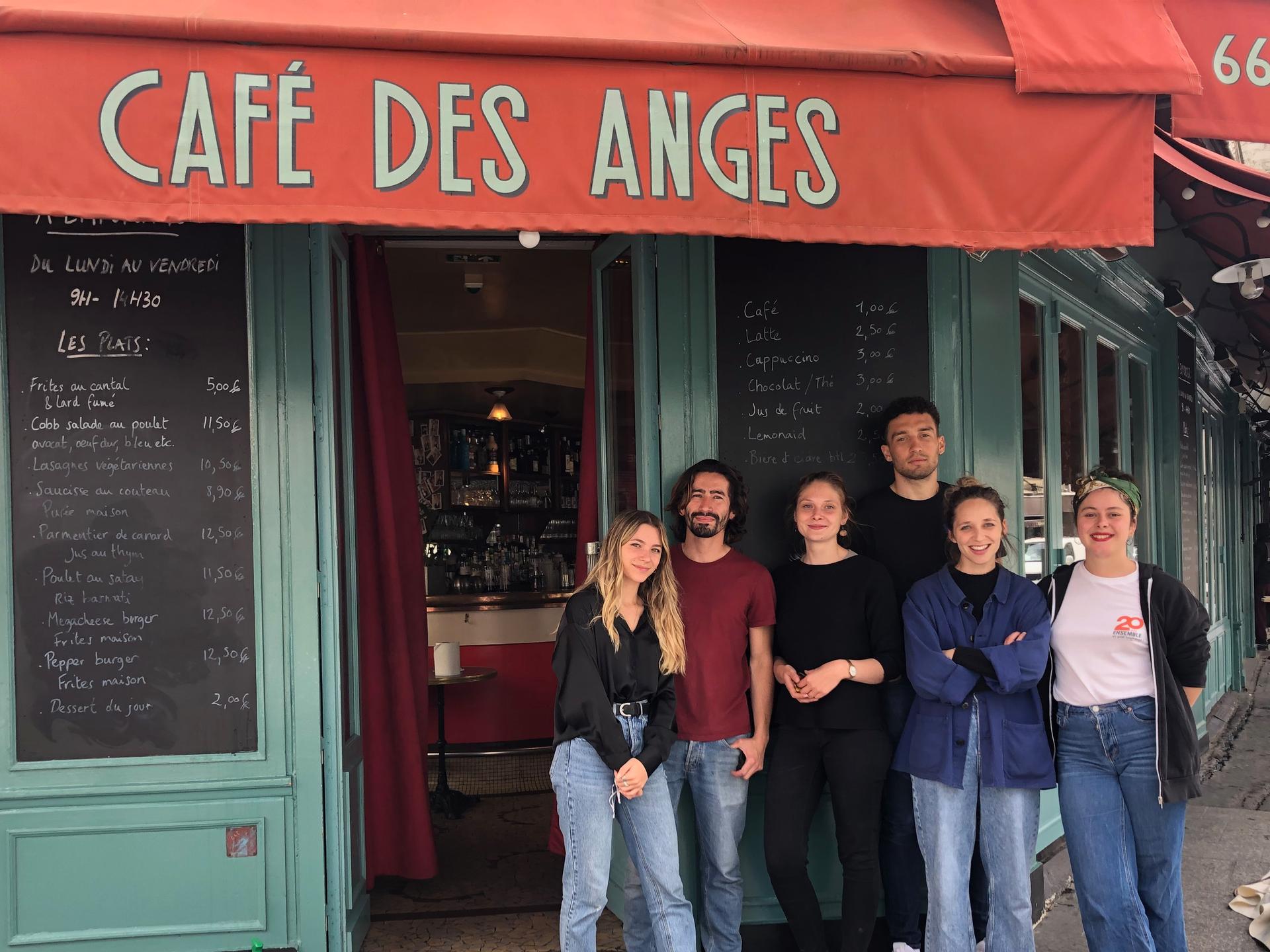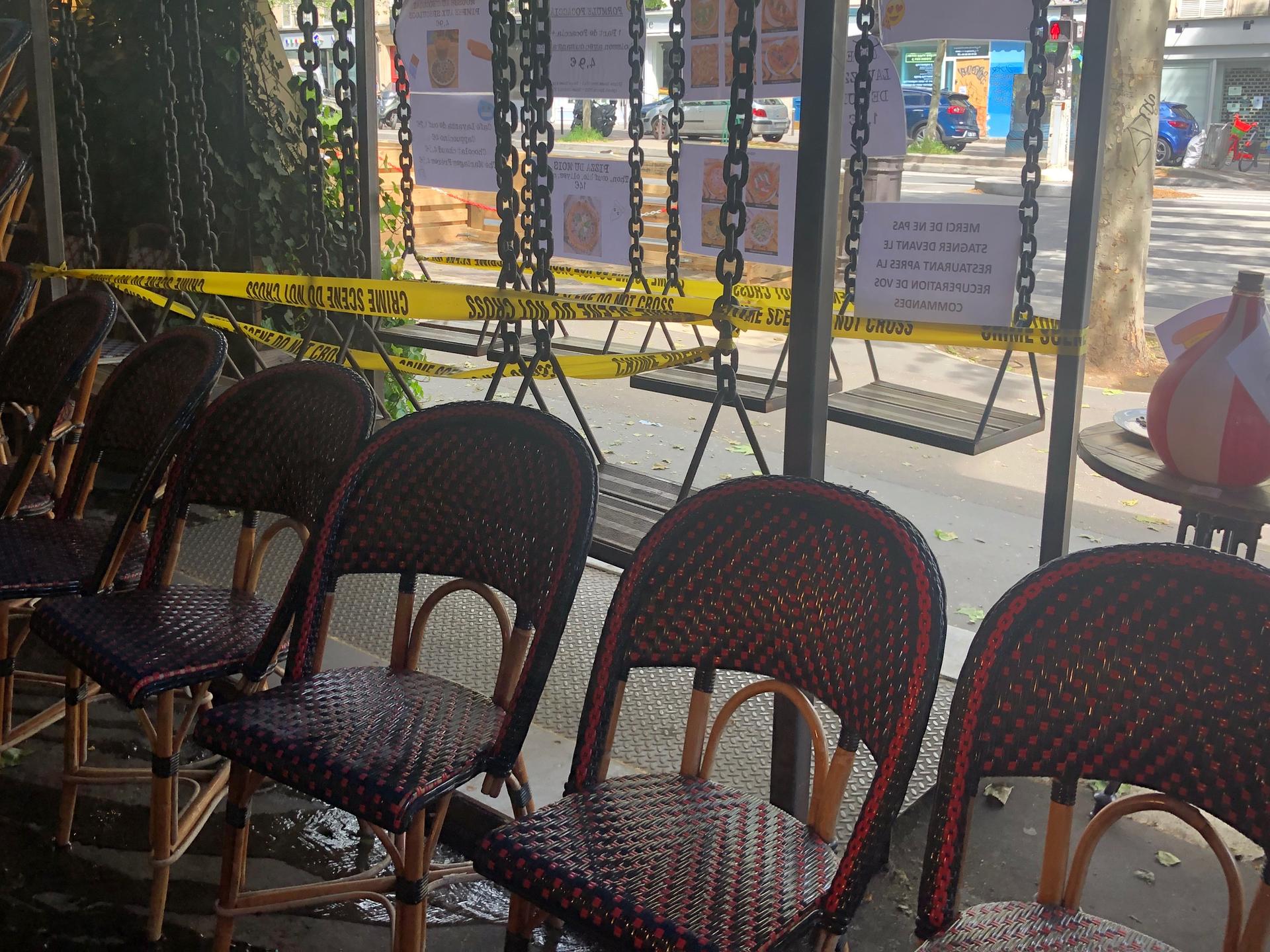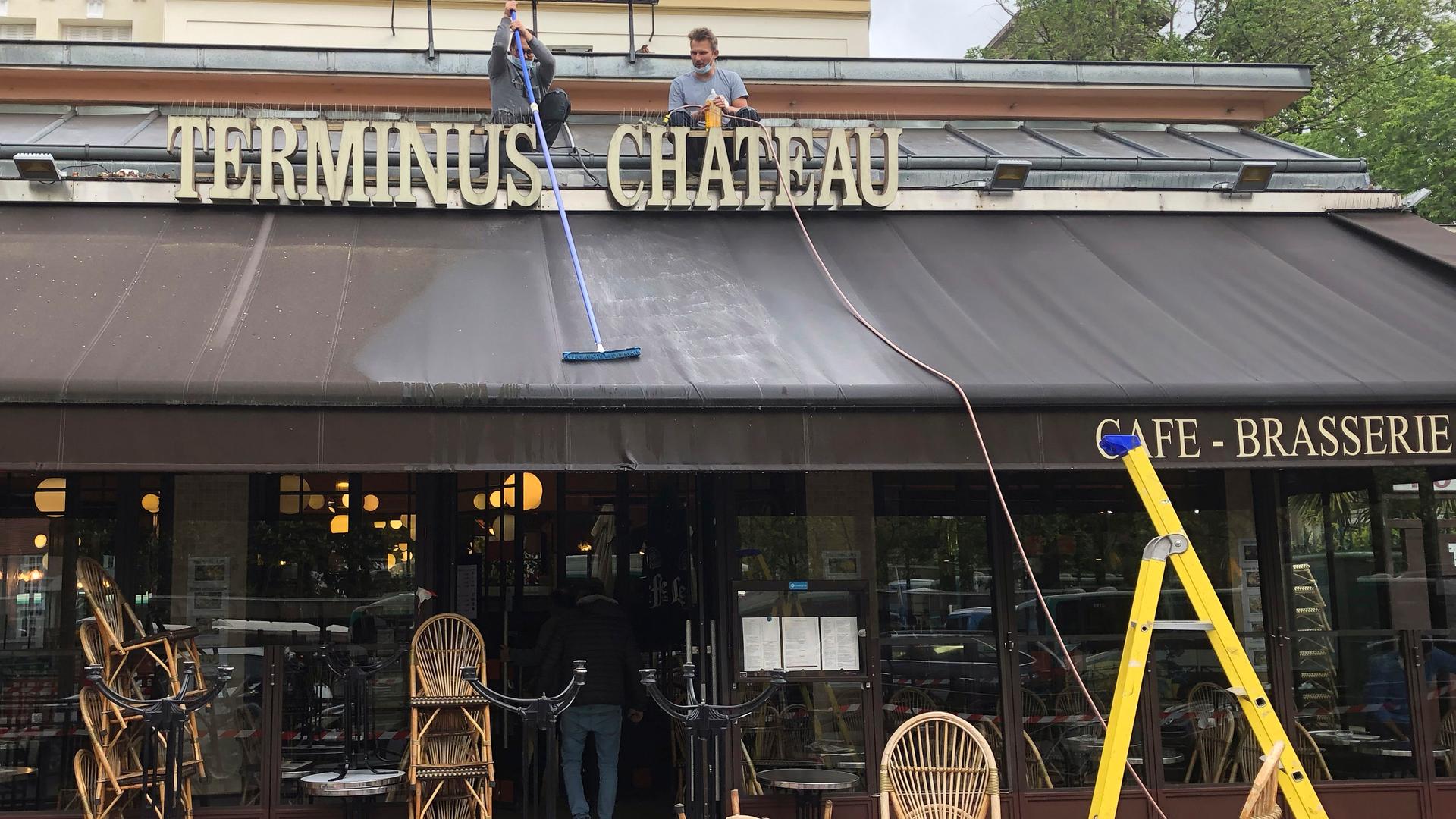After three lockdowns, France is beginning to open up again.
From Wednesday, cinemas, museums and theaters can welcome customers at partial capacity — news that has delighted locals and tourists alike.
But for those living in Paris, there’s one main attraction on their sites — the return of la terrasse.

After six months of forced closure, restaurants, cafes and bars can open for outdoor dining at 50% capacity.
“We’ve been doing a lot of cleaning the last few days.”
“We’ve been doing a lot of cleaning the last few days,” said Katrine Maute, the manager of Café des Anges in the 11th arrondissement.
Related: England indoor dining resumes, but where are all the staff?
Next to Maute, workers line up a series of tables along the outdoor terrace and begin sanding them. After all, the tables have been locked inside for more than half a year.
During the summer months, the long terrace is filled with young customers sipping on happy hour spritz drinks and snacking on homemade crisps.
The outdoor terrace isn’t a strictly Parisian phenomenon. But it carries a special weight in a city as dense as the French capital.
Related: France’s top elite school closes in quest for diversity
“[The terrace] is like an extension of the home,” said Lindsey Tramuta, a Paris-based journalist and author of “The New Paris” and “The New Parisienne.”
“If you think back to as recently when Simone de Beauvoir and Jean-Paul Sartre were convening in cafés, they were doing it because it was a sort of bridge between the public and private space that has carried over generations.”
Given the relatively modest size of most Parisian apartments, the cafés have always been a welcome escape.
“Even during wartime, the cafés weren’t closed for this long.”
“Even during wartime, the cafés weren’t closed for this long,” Tramuta said.
Indeed, the last six months is the longest stretch in modern French history the cafés have been kept shut.
While owners are eager to reopen, there are also new challenges.
According to one recent study, more than 110,000 people in France have quit the hospitality industry in the last year. Long hours, low pay and the instability exacerbated by COVID-19 are all contributing factors.
Another test of long-term survival will be the summer tourist season.

The European Commission says it will allow Americans who are fully vaccinated against COVID-19 to visit starting in June, but it’s still too early to predict what those numbers will look like.
Still, café owners don’t expect to have any trouble attracting locals. Reservations made through the popular booking website The Fork have reached record numbers, with many restaurants fully booked.
Related: As Europe plans to reopen, travelers must read the fine print
“We have all been waiting,” said Arthur Marzouk, a consultant eating a takeaway falafel in the Place des Vosges.
The 27-year-old says he’s sick of takeaway and ready to sit down for a proper meal. His first meal: a lunch with family at his favorite steak brasserie near the Arc de Triomphe.
Even with thunderstorms expected on Wednesday, Marzouk is eager to get a coveted outdoor table.
After all, he said, “the terraces are the soul of the city. We need them back ASAP to feel some sense of normalcy.”
